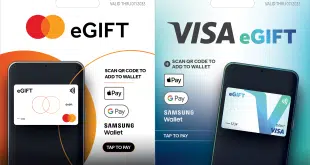The NYCE electronic funds transfer network, which last month said it will pilot PINless purchase transactions online, has become the second EFT system to agree to test Web-based debit card transactions secured by PINs. While Steven A. Rathgaber, president and chief operating officer at Secaucus, N.J.-based NYCE, says many of the details for the PIN debit pilot have yet to be worked out, he is apparently eager to get the project onstream. “We're hoping to go live as early in the year as possible,” he says. “I'd be disappointed if we didn't have it under way by the end of the first half of the year.” NYCE, a unit of processor Metavante Corp., follows Accel/Exchange, Morris Plains, N.J., into the arena of online PIN debit. The Accel/Exchange network, which is owned by Metavante rival Fiserv Inc., announced in October that it is working toward a commercial online PIN debit service for launch in 2009 (Digital Transactions News, Oct. 23). Both EFT systems are relying on technology from Acculynk Inc., an Atlanta-based company whose software displays a so-called floating PIN pad on users' PC screens and includes encryption of transaction data, including PIN blocks. The NYCE project also follows the network's announcement in November that it is planning a pilot, also set for early next year, of an online debit service that relies on online-banking credentials in place of PINs (Digital Transactions News, Nov. 18). For this service, which NYCE is calling SafeDebit, the network is relying on technology from Verient Inc., San Jose, Calif. Rathgaber says the purpose of running the two pilots in parallel is to help figure out what form of Web-based debit NYCE should ultimately adopt. “There is substantial interest in alternative forms of payment for the Internet, but it's less clear which kind,” he says. “That's why we're experimenting.” The PIN debit pilot appears to be at an earlier stage of development than the SafeDebit project. NYCE has solicited a number of its member institutions about participating in the PIN debit pilot, though Rathgaber won't comment on issuer participation beyond saying it will be “limited” with respect to the number of institutions. “We are awaiting some commitments,” he says. For SafeDebit, Rathgaber said last month “several” financial institutions would participate, along with what he called a “brand-name” merchant,” in a “modest” test for which more merchants would likely be added. While NYCE has set a separate interchange rate for SafeDebit, Rathgaber says that rate may or may not apply to the online PIN debit transactions. The rate has not been disclosed. Also, it will be possible for a merchant to accept both SafeDebit and PIN debit transactions on NYCE, but details concerning how this acceptance will be displayed to consumers remain undetermined. “We haven't finalized that model yet,” says Rathgaber. “That's one of the aspects we haven't got our head around.” SafeDebit as a brand harks back to an effort NYCE made early in the decade to allow cardholders to make online transactions using CD ROMs. That initiative, while ambitious, failed to catch on. The current version instead relies on a platform that allows consumers to authenticate themselves at their online-banking sites. The system generates a temporary virtual card with a limited-use account number consumers can use to complete their transactions. These “pseudo-cards” are translated into real account numbers by the time they reach the NYCE switch, but consumers don't enter either their PINs or their actual account data. The pseudo-cards may take on additional features later on, Rathgaber hints without giving details. With the Acculynk system, consumers enter their PINs on the floating pad by using mouse clicks. Acculynk's data center passes on all card data in encrypted form to the EFT switches. “What the Acculynk product brings to the table is the PIN,” says Rathgaber. Indeed, online shoppers may end up sorting themselves into two camps, with those more comfortable entering payment data using the Acculynk system and those more security-sensitive using SafeDebit, Rathgaber says. “SafeDebit and Acculynk could be construed to be serving different markets,” he notes. “We'll get smarter about that as we go along.” What is clear to NYCE, at least, is that PIN debit, along with the real-time, guaranteed-payment functions offered by EFT networks, has a role to play on the Web. “We're leveraging an infrastructure designed for real-time payments,” Rathgaber says. “It's an extension of what we do.”
Check Also
Consumers Plan to Use Tax Refunds To Pay Down Debt, ACI Finds
Paying down debt is one of the top ways consumers intend to spend their tax …





